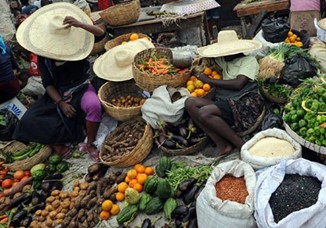Course General Info
- Instructor: Prof. Joseph A. Torres-González, MA, CGS (He/Him/His/El)
- Drop-In (office) Hours: TU/TH 4:30-5:00 PM (Via Zoom appointments)
- Email: joseph.torres@brooklyn.cuny.edu – I will respond to emails in 24-48 hours.
- Why request Drop-in (office) hours? Click here
A note on this course:
Welcome! This class is generously supported and part of an exciting initiative at CUNY called “Transformative Learning in the Humanities (TLH).” TLH focuses on equitable, creative, student-centered teaching. That means that this class is built with you—students—at the center. You are now a “Mellon TLH Student Scholar,” simply for showing up to this special class. This title is something you can put on your CV/resume either now, or down the road, to show future employers that you participated in this exciting program by taking this class. Thank you for being you and for being here!!
“In the present instance, the prosaic quality of the subject matter is inescapable; what could be less “anthropological” than the historical examination of a food that graces everyday modern table? And yet the anthropology of such homely, everyday substances help us to clarify both how the world changes from what it was to what it may become, and how it manages at the same time to stay in certain regards very much the same.” (xxvii) –Sidney W. Mintz (1986), Sweetness and Power: The Place of Sugar in Modern History
Course Description
“Eating and food provide some of the most basic ways in which humans define themselves. A cross-cultural consideration of nutrition, food production and food as social practice will help to define the place of food and eating in basic human practice.” (Brooklyn College Course Catalog, 2022)
Food is an essential component for the survival of any living organism. Such as the case with humans, that in order to live, they need to eat. Food gives us an opportunity to see the similarities and differences among cultural groups, one group’s delicacies are another’s taboos. Why is food inherently part of culture? This is one of the main questions we will attempt to respond to in this course. Food is part of an economic system, but also part of a political and symbolic imaginary. In this course, we will cover an array of topics that include: food production, exchange, and consumption; power, politics, migration, labor, race, gender, space, language, nutrition, and eating. This experience will give us an opportunity to see how intrinsic food and eating are, not only for the survival of our species, but as part of culture and society.
Learning Outcomes

- Identify the main theoretical traditions that have influenced the Anthropology of Food, as a sub-field within Anthropology.
- Contextualize the historical, cultural, political, and social dynamics that have shaped the production of scholarship in the anthropology of food.
- To learn to use food as an analytical entry into anthropology.
- Demonstrate through short-forum post assignments, reflection papers, and other audiovisual analysis, how the perspective of political economy, power, identity, and politics shape the study of food.
- Articulate and implement critical thinking skills for analyzing the existence of inequities (by race, gender, ethnicity, social class & language) in food, eating, and nutrition.
Some of my principles as a professor 3
- No human being is illegal. We can disagree on most things, but not the basic humanity of all people.
- I will never ask you to work harder than I do. No question is a dumb question.
- I will show up and I ask you to (that means: preparation, attention, dedication, and diligence).
- I want ALL my students to succeed. Let me know how I can help you on your journey.
- We write to learn, and we learn to write (no matter how comfortable or uncomfortable/experienced or inexperienced we are with writing already).
- Bring your whole self: all people are welcome in my class, and you can be assured that I will advocate for you and with you no matter your immigration status, pronouns, disability, family responsibilities, work commitments, etc. I expect those in the room to do the same. Always be open to speaking and having a collegial conversation.
- Teaching is something that I love, and my commitment is with all of you.
Footnotes:
- Revised August 15, 2022.
- Syllabus structure inspired by an original design by Dr. Mila Burns, Assistant Professor, Department of Latin American & Latino Studies, Lehman College.
- Inspired y Dr. Alyshia Gálvez, Professor of Latin American and Latino Studies, Lehman College, CUNY


